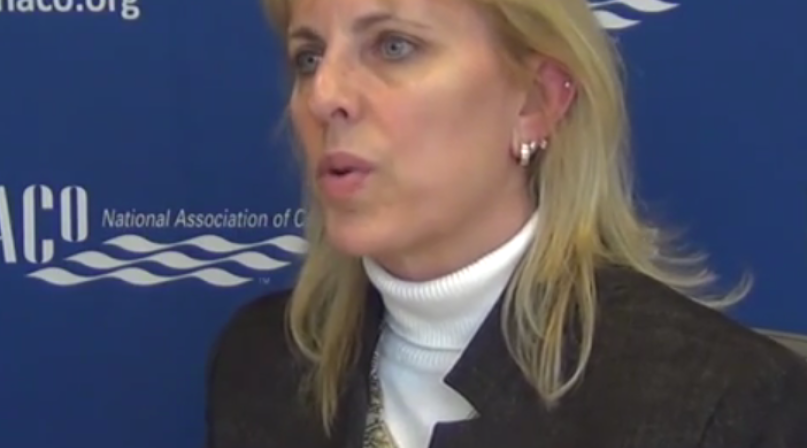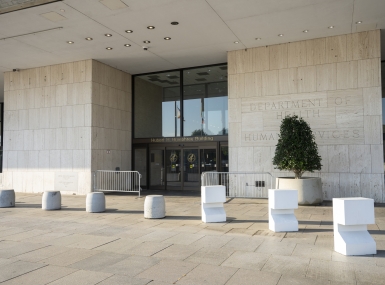NACo joins ‘Campaign to Change Direction’

Commissioner Mary Ann Borgeson, Douglas County, Neb., chair of NACo’s Health Steering Committee, joined leaders from government, nonprofit and the business community to announce The Campaign to Change Direction, a national initiative to create a new story in America about mental health, mental illness and wellness.
The campaign, launched March 4 at a mental health summit in Washington, D.C., included a keynote address from First Lady Michelle Obama, an appearance by the Academy Award-winning producer of Silver Linings Playbook, Bruce Cohen, and a performance by G.R.L., a musical group that was personally touched by the issue when their lead singer, Simone Battle, committed suicide in September 2014.
Inspired by discussions at the White House National Conference on Mental Health in 2013 and led by the nonprofit organization Give an Hour, “Change Direction” is a response to the way society addresses mental health. One-in-five Americans lives with a diagnosable mental health condition, and counties are a major cornerstone for behavioral health services.
Through more than 750 behavioral health authorities and community providers, counties plan, operate and finance communitybased services for persons with mental illnesses, substance use conditions and intellectual and developmental disabilities.
Borgeson, who spoke at the launch event, said, “As county leaders, we are committed to improving the responsiveness, coordination, accountability and integration of person-centered behavioral health services in appropriate settings.
“And this extends to our nation’s heroes who reside in our communities…our veterans and their families, who face unique barriers to accessing services. We are in your communities and we care — and we will continue to give a voice to those who feel like they have none.”
Attachments
Related News

U.S. Department of Health and Human Services announces major restructuring
On March 27, the U.S. Department of Health and Human Services (HHS) announced a sweeping reorganization that will consolidate agencies, shift key programs under a new framework and eliminate thousands of positions. This change brings HHS in line with President Trump's Executive Order, “Implementing the President’s ‘Department of Government Efficiency’ Workforce Optimization Initiative.”

U.S. Department of Health and Human Services moves to reduce public comment in rulemaking
On February 28, the U.S. Department of Health and Human Services (HHS) announced a policy change limiting public comment opportunities to only those required by law. Published in the Federal Register on March 3, the decision rescinds the “Richardson Waiver,” a 1971 directive from then-HHS Secretary Elliot Richardson that encouraged broader public input on regulations related to public benefits, grants and healthcare policies.

U.S. Department of Health and Human Services renews Public Health Emergency Declaration to address national opioid crisis
On March 18, the U.S. Department of Health and Human Services (HHS), under the direction of Secretary Robert F. Kennedy, Jr. renewed the public health emergency (PHE) declaration to address the ongoing opioid crisis, extending critical federal support for coordination, treatment expansion and research efforts. While overdose deaths have declined by 25.5 percent over the past year, synthetic opioids like fentanyl continue to drive fatalities, with approximately 150 Americans dying daily from overdoses.
